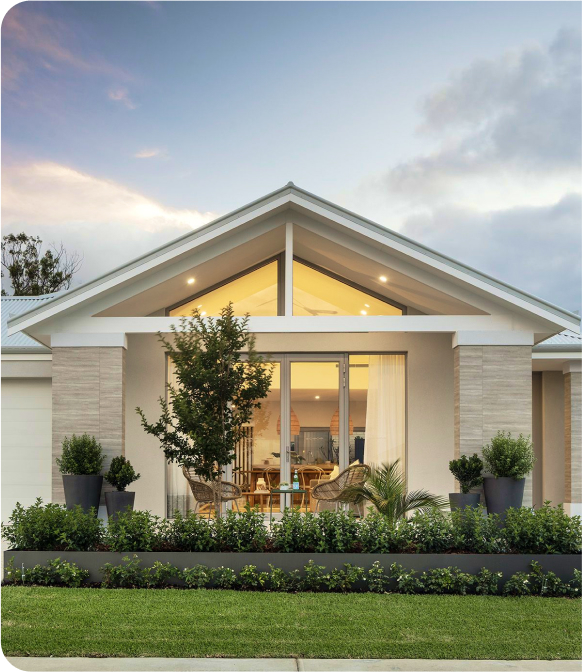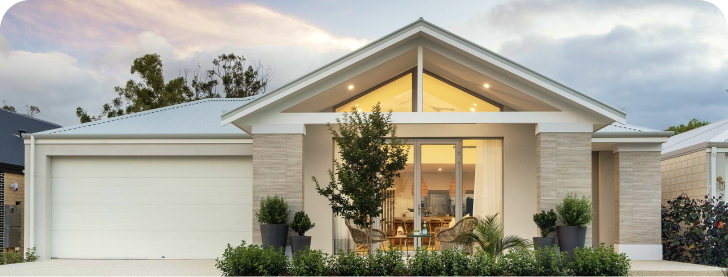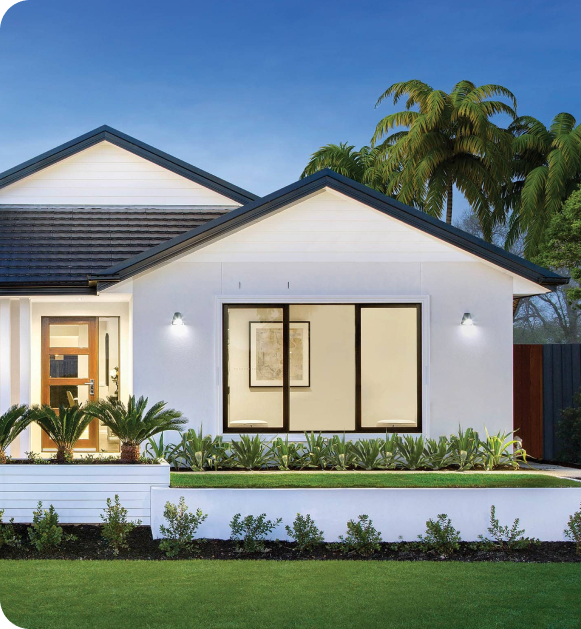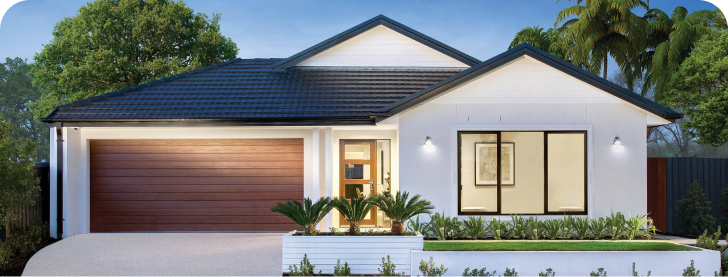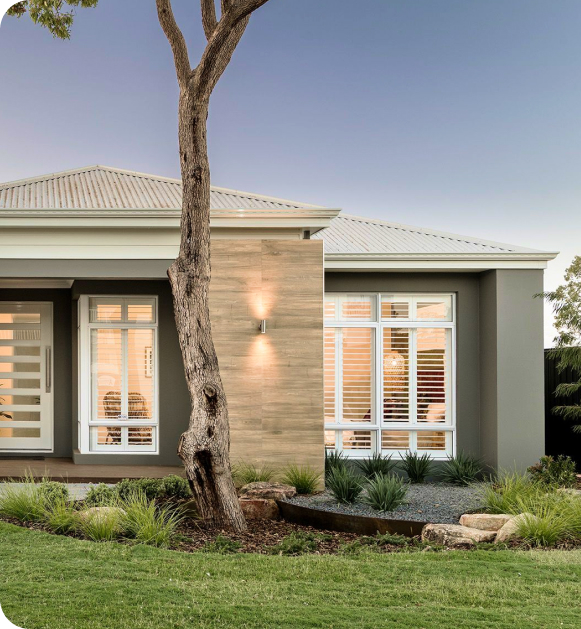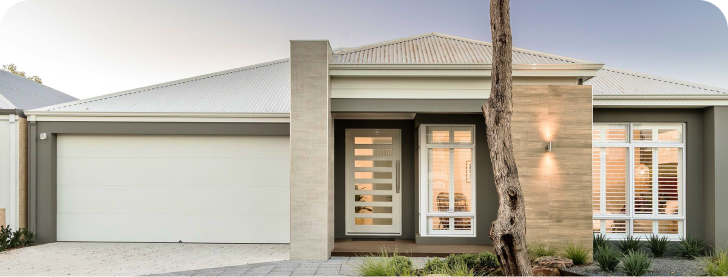
Backyard cottages have become increasingly popular among property owners in recent years. All these are due to a simplified construction process (for instance, for prefab ADUs), typically a smaller cost, rental income incentives, extra privacy, and many other benefits.
If you need an additional living space that can serve as a rental property, a house for guests, or a relaxing space for your family members, an accessory dwelling unit is for you. An accessory dwelling unit (ADU) is a tiny home with a separate entrance located on the same plot as your main house. Privacy is essential for an ADU, just as it is for the primary residence, as it creates a comfortable and peaceful environment for leisure time and work.
In this article, we will explore why privacy and a lack of disruption are important for life quality and how to archive them.
A detached ADU seems like the perfect solution for organizing a home office for remote work or business projects. And it actually is because you have the opportunity to barrier yourself from the surrounding hustle and bustle and avoid disturbance. However, having physically separated yourself from family members with thin walls, you’re still prone to hearing children’s voices from the garden, close neighbors’ conversations, and the sounds of cars. In this instance, it’s hard not to lose concentration.
So, if you’re sick of putting up with high sound transmission and seeking ways to deal with an unwanted abundance of sound and noise, have a look at the following tips:
Your goal is to block up every nook and cranny with fiberglass or other insulation materials that will stop outdoor sounds from getting inside the ADU through a thin drywall covering. You can also resort to soundproof foam panels and add them to your wall construction to create two layers that absorb excessive noise.
Special wallpaper attached to the ADU walls has properties that stop the sounds, and together with soundproofing insulation, they complete the sealing process.
Your furniture should be functional and easy to access. But aside from that, it plays a big role in creating an obstacle for noise if placed against the walls.
What types of insulating materials can you use for your construction project to make it all peaceful and quiet? There are plenty of them, all serving well enough to create privacy.
If you plan to both soundproof and winterize your property, consider fiberglass. You can install this thermo- and sound-preserving material on the floor and ceiling as well. Another popular choice is foamed polyurethane. It is good for closing up small cracks and gaps to prevent anything (be it sound or cold wind) from interfering with your ADU.
Rockwool is thicker and harder, which makes it convenient to cut it into even pieces. It’s handy for insulating all walls at once. Also, this material is fire- and water-resistant. And the last of our recommendations is an eco-friendly material: cellulose fiber. It can be either crumbly or in a more solid state, which means you can use it both for cracks and as whole blocks. And its properties don’t differ from those of other materials, except that it’s also more favorable for the environment.
Quality windows can make a big difference for your ADU rooms, adding the necessary amount of natural light and simultaneously reducing outside noise. It all depends on the construction of windows, their functional properties, and extra means of isolating internal living space.
During the development of an ADU project, consider these ways to improve muffling sounds:
Another concern for your calm routine is choosing the right door. If in your bedroom you don’t want to hear what’s happening in the bedroom, pay attention to the doors’ core. Hollow doors are thin and create extra space for sound resonation. Therefore, it is better to make a choice in favor of solid-core doors.
Also, the slit under the door often facilitates the transmission of sounds. To deter it, you can acquire such things as an audio-mute door sweep that obscures unnecessary gaps. The same applies to slits between the doorframe and the door itself. Here, weather stripping for door seals comes in handy.
Add the finishing touch by installing acoustic panels on the inside of your door, especially on the front ADU door.
How can flooring affect the sound permeability of your ADU house? The thing is, hard and smooth surfaces like tile or hardwood reflect sound waves easily and make them travel through your working studio with higher intensity. Also, such surfaces are exposed to vibrations. This means you hear footsteps or furniture movement in other rooms as well.
To solve this problem, you can do a few things:
Cork and carpet coverings can help absorb sound instead of reflecting it. However, if you want to use wooden surfaces, you can just place a nice big carpet near your bed.
This is especially suitable for places where you can’t carpet, for example, the bathroom. It’s advisable to pick underlayment or matting specifically intended for acoustic insulation. It can be a rubber or cork underlay.
When you foresee everything, you may realize that sounds can travel not only between rooms but also in the vertical space between floors. If your ADU is an accessory dwelling unit on top of the garage, the loud sounds of car repairs and a running engine may be a source of great distraction. All you have to do to reduce their impact is seal all seams between floor material pieces, floor edges, and walls.
To achieve the best effect, use everything at once!
For ceilings, use the very same methods as for walls and floors. To complement it with acoustic features, you can use noise-proofing sealants, get drywall panels with green glue attached to the ceiling, or add a layer of insulating materials underneath your ceiling material.
One more thing that people typically miss and undervalue is that lighting fixtures installed in your additional living space can transmit sounds as well. So even if you soundproof all of your ceilings but leave a place for ceiling light, the sound can find a way into your noise-isolated space from there. In order to prevent it, all you have to do is either insulate spaces around them or buy lights with an acoustic resilience feature.
The way to ensure quietness and privacy in your accessory dwelling unit is not only to prevent noises from entering your living space but also to minimize them inside. The HVAC system is known for creating exaggerated sounds when it’s in working mode. Yet, there are still a few methods to battle this.
If your HVAC devices are loud, try the following things to reduce noises and vibrations:
Moreover, at this stage of the ADU building project, consider placing your HVAC system at a distance from your workplace. It will prevent many troubles and spending money on numerous soundproof means.
Usually, authorities do not forbid building ADUs that consist of two blocks if they comply with requirements set in local laws, building codes, and zoning regulations. Especially the requirements concerning the size. Thus, if you build a living space for more than one family to share, it’s crucial to provide your property with as many privacy features as possible to increase your property’s appeal.
To stop the sounds from leaking from one unit to another shared one, you have to focus on the wall that separates them. In this case, we can resort to insulating materials, double-layer drywalling, sealing gaps and corners, arranging bookshelves against the wall, and other methods we have mentioned before.
First, take the necessary measurements from the wall. Then choose the materials. For better effects on the comfort of living, you can buy noise-dampening blocks or special pads and install them on both sides of the shared wall. They are not entirely functional but may become an interesting part of a design solution.
When you work from the house, you don’t need other home residents intervening or overhearing your conversation by phone, having a peek at the screen of your computer, or, if your property is a workshop, being disturbed by the loud sounds of your activity.
With that being said, privacy screens and partitions are the right means to both limit visibility and restrict the spreading of sounds. They have properties to shield the chosen place from external interference.
A common way to use nicely designed opaque room dividers is to install them between your working place and the rest of the shared room so as to preserve ADU residents’ confidentiality as well as the comfort of family members and other tenants.

Approaches to organizing a peaceful environment in outside spaces vary widely depending on your design preferences. Thus, some homeowners prefer building noise-reducing fences around their cozy garden areas, while others plant trees, shrubs, and beautiful green hedges.
Another way to make your outside living space quieter is to muffle loud noises from the road with enjoyable natural sounds like a garden waterfall. Moreover, if you have any walkways or decking in the garden, it’s recommended to make them from a porous material to absorb sounds rather than reflect them.
Remember that the more greenery and rustic-looking vertical barriers you set around your garden, the less noise they will let in. If you’re interested in creative solutions, consult with an ADU designer and make your rental property both a practical and charming space!
Of course, if your property size allows, it makes sense to create a home-based business ADU separate from the main house. The reason is that a separate entrance, walls, and distance between the primary residence and the ADU give you the benefit of completing any project in peace and quiet. However, an attached ADU, a basement ADU, or even a garage ADU are suitable for undisturbed work, given that you invest in improving their sound resistance.
An ADU is a self-sufficient unit near the main house that can serve you as a place for storage (with its built-in storage closets and other vacant vertical spaces), space for hobbies and interests, or a temporary shelter for guests from another city.
Moreover, you can accommodate a family member and share amenities with them. Spared money on bills, especially if you implement energy-efficient technologies like solar panels, is one of the greatest advantages of ADUs.
Also, let’s not forget about garage ADUs that are both economical in terms of building cost and maintenance and are a property to rent out for a decent payment.
It’s correct to note that your place of residence affects zoning regulations and other requirements. And it’s super important when you complete your ADU to be sure that you won’t have to re-do the whole work because city authorities reject the permission. Not only would this increase the cost, but it would also delay the time when you could begin to use your property. That is why we recommend you consult with professionals or, even better, entrust your ADU unit project to people well-versed in the construction field.
